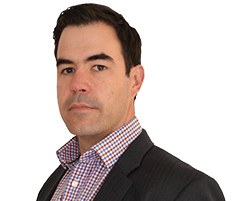Communicating health and safety: speak and be heard
James Irwin, head of health & safety recruitment at Acre, the market leader in sustainability and safety recruitment, speaks to Anne Davies, special counsel at Withers LLP about the power of words, emotional intelligence and how to prepare for an interview under caution.
James: Anne, what first attracted you to a career in law?
Anne: At school I was a useless scientist but quite good when it came to the spoken word. Growing up bilingually in Wales, I enjoyed public speaking and learned early on about the power of words and language. When it came to choosing a career, I decided that I either wanted to become a broadcaster or a lawyer. Law won as I thought it might have better prospects.
James: Health and safety is now one of your specialisms. Was that a deliberate choice?
Anne: I started my career in insurance litigation but my interest in health and safety steadily evolved and I moved into the area as it started to emerge as a separate field. I’ve always enjoyed litigation, which I suppose goes back to my passion for language and a good debate. It’s a lot more collaborative now and a lot less combative than it was back in the early 1990s.
James: Much of your work is in helping clients manage crises. What skills do you need to be able to help clients in a crisis situation?
Anne: Knowledge of the law is a given these days, but to really help a client you have to realise that you’re also supporting the people who are trying to deal with the crisis. To do that effectively, you have to understand them and you have to understand their business. You must place the health and safety aspects of the crisis within the wider context of how the situation may impact the business.
Taking a pragmatic but empathic approach means that you’re better equipped to find resolutions that align with the aims and objectives of the organisation. The biggest mistake in a crisis is to lose sight of the people who are caught in the middle of it, so I’d say emotional intelligence comes high on the list of required skills.
James: You work across a wide range of industry sectors – are there some sectors that are leading the way in health and safety?
Anne: There are certainly varying degrees of maturity. The construction industry for example is very mature compared to the agricultural industry, but it’s not just the degree of maturity. It’s also about understanding the very different styles of leadership between the sectors – even between companies within a sector – and then adapting the approach accordingly to advise each client correctly.
This lack of adaptability is one of the traps I see some health and safety professionals falling in to. They get their qualification and try and adopt a ‘one size fits all’ approach without understanding the organisation, the personalities involved or, most importantly, the need to adapt their own style and communications strategy accordingly. It helps to have experience and interests in a broad range of areas, as these can usefully provide a different perspective on the advice you give – for instance, I frequently look at health and safety issues through the context of how corporate fraud is investigated.
James: Do you think companies are getting it right in terms of how they communicate health and safety?
Anne: It’s mixed, but those that do get it right are the ones that understand how important it is to tailor their message. It’s easy to pull a health and safety briefing off the internet and issue it to staff – job done. But those organisations that are ahead of the game are the ones who are taking that briefing, translating it into the ‘voice’ of their own organisations and aligning it with the personal style of the communicator. That way, when the CEO talks to employees about the importance of safety, it’s in a language, style and format that feels authentic. You’re far more likely to engage people this way and create a safety culture.
James: What advice would you give to people who want to improve their communication skills?
Anne: Talk to people. We’re very focused on email these days, partly because people are concerned about creating paper trails to cover their backs, but picking up the phone and speaking to people or meeting face to face is so much more powerful. Words are powerful and there’s something about the spoken word that’s especially so. But that doesn’t just apply to health and safety practitioners – it’s something I advise board-level clients to do too in their interaction with employees, clients and other stakeholders.
James: Can you tell me more about that?
Anne: A lot of my work involves advising and training board members on how to deal with crisis situations. A crisis is usually something that comes out of the blue, which is why I caution against over reliance on written reports. There may be comfort in the report that tells you that your accident incident rate is low, but it can also give you a false sense of security.
I encourage board members to be inquisitive – to get out into the business, visit sites, get to know people and ask questions. One health and safety director I know spends a lot of time in the staff canteen because it’s such an effective way of keeping in touch with what’s really going on. It’s the power of talking to people – there’s no substitute.
James: A number of our previous interviews have touched on the need for health and safety to be better integrated into the business. What’s your view? Is it currently too siloed?
Anne: In a lot of companies, yes, it is siloed and that narrows organisational thinking. Following the recent spate of terrorist attacks, companies’ security teams have been working hard to assess and manage the risks to their employees and their operations. These teams are normally separate entities, but they are both aspects of risk management. I think it’s high time we started treating them as such.
James: One of the things you offer your board level clients is a mock interview under caution. How popular is this sort of training?
Anne: Some companies turn to this sort of training post crisis as a way of learning lessons and making sure that something similar never happens again. That said, I’m seeing a new breed of more enlightened CEO emerging and these are normally the people who are more proactive. Generally, these are the CEO’s with a background in risk management and who want to be on the front foot and prepare themselves in advance to the maximum possible degree.
James: How do people react during the training? It must be quite an intimidating scenario?
Anne: I think the first shock for a board member is that no matter how competent they are in their role, they’re immediately on the back foot. It can often be a shock to realise that the investigator won’t just want to know about the incident that sparked the investigation, but how health and safety is managed within the organisation as a whole – so the breadth of enquiry is usually a surprise. The whole point of the training is to make sure that the board member understands the process and is prepared should they ever find themselves in that situation, so the point of it isn’t to intimidate, but to prepare.
James: What advice would you give to someone just starting their H&S career?
Anne: It’s hard work so you have to have an interest, not just in the subject matter, but in organisations and people too. I’ve already mentioned how important it is to have excellent communication skills, but presentation skills are vital too, because you’ll need to be able to influence and persuade people at all levels of a business.
Finally, it’s about emotional intelligence. Flexing your style according to who you’re speaking to relies on your ability to read people. Once you’re able to do that, then you can use the power of words and language to advance your case.
 James Irwin leads the health, safety and environment recruitment function at global sustainability recruitment specialists, Acre. In addition to leading the team, James recruits senior health, safety and environment professionals globally. In 2013 James launched the Senior Women in Sustainability, Safety and Environment (WISSE) network and the Senior Ex-Forces in Safety Network, both platforms which brings together senior safety professionals with a shared background to engage, network and share ideas.
James Irwin leads the health, safety and environment recruitment function at global sustainability recruitment specialists, Acre. In addition to leading the team, James recruits senior health, safety and environment professionals globally. In 2013 James launched the Senior Women in Sustainability, Safety and Environment (WISSE) network and the Senior Ex-Forces in Safety Network, both platforms which brings together senior safety professionals with a shared background to engage, network and share ideas.
 Anne Davies specialises in providing strategic health and safety advice, to organisations. She has been involved in many of the major health and safety cases of the last decade, including having defended McDonalds against group litigation in the now famous ‘Hot Drinks’ litigation, which remains one of the leading decisions under the Consumer Protection Act 1987.
Anne Davies specialises in providing strategic health and safety advice, to organisations. She has been involved in many of the major health and safety cases of the last decade, including having defended McDonalds against group litigation in the now famous ‘Hot Drinks’ litigation, which remains one of the leading decisions under the Consumer Protection Act 1987.
Anne is particularly well known for her ability to advise Boards of Directors on proceedings brought by the regulators and the CPS. She has developed a range of training programmes and tools to help Directors understand their responsibilities, and understand how to deal with crisis situations should they occur. An innovative training programme she runs involves Directors undergoing a simulated interview under caution, so participants can experience the reality of an external criminal investigation. Clients and peers praise her practical and proactive approach in providing this Board-level advice.”
Communicating health and safety: speak and be heard
James Irwin, head of health & safety recruitment at Acre, the market leader in sustainability and safety recruitment, speaks to
Safety & Health Practitioner
SHP - Health and Safety News, Legislation, PPE, CPD and Resources Related Topics
What does it take to be a Rising Star?
Webinar: Risk Management Redefined: How To Drive Continuous Improvement
Webinar: Enhance Health and Safety in Your Supply Chain by Empowering your Contractors


